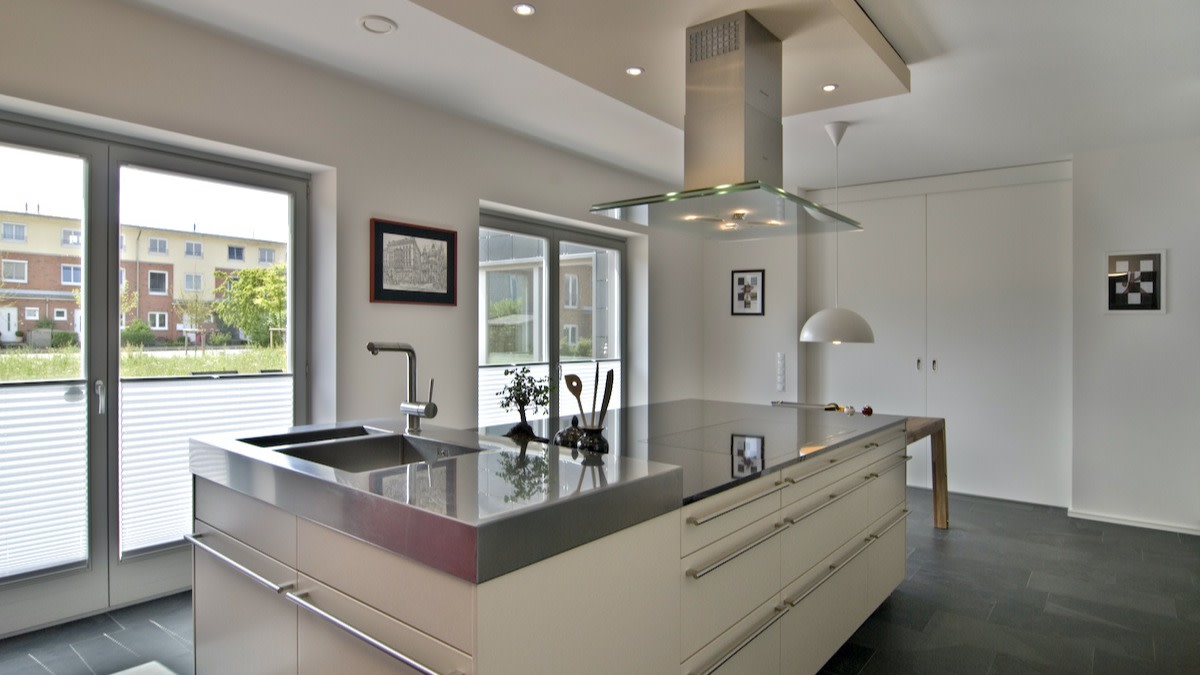Guide to Zinc Countertops: Benefits of Zinc Kitchen Counters
Written by MasterClass
Last updated: Jun 7, 2021 • 3 min read
Looking to makeover your kitchen? Installing zinc countertops can add a unique sense of style to a kitchen remodel.
Learn From the Best
What Are Zinc Countertops?
Zinc is a reactive, soft metal known for its living finish that constantly evolves over its lifetime; part of a zinc countertop's charm is that it reacts and changes its appearance based on how you interact with it. Small scratches and marks appear in the zinc over time, and elements such as water, sunlight, fingerprints, and acidic foods (like lemon juice) affect how it looks. Custom zinc countertops have a unique look, as no two zinc countertops are ever exactly the same because of this reactive quality.
Unlike stone countertops, zinc countertops (like all other metal countertop materials) consist of thin sheets of metal that are molded and fastened to a wooden sublayer. Sheet metal fabricators offer zinc sheets in both a mirror-polish and matte finish, but normal usage eventually causes the zinc to develop a dark blue-gray patina finish. This patina zinc has an aged, rustic quality that bears a resemblance to pewter.
4 Advantages of Zinc Countertops
Zinc countertops bring a unique aesthetic to home design, and they have several practical benefits as well.
- 1. Zinc is easy to clean. All you need is a mild soap or a non-abrasive household cleaner.
- 2. Zinc has antibacterial properties. Like a copper countertop, zinc is a non-porous solid surface. This means a zinc bar top, tabletop, backsplash, or countertop won't harbor harmful microorganisms and is an ideal surface to use for prepping food.
- 3. Zinc features an aged, natural look. Unlike laminate or stainless steel countertops, zinc's living metal finish gives it a special, timeworn style that's always changing.
- 4. Zinc is malleable enough for fabricators to customize. Zinc is a durable metal, but it's soft enough for fabricators to add decorative edges and rivets. Since zinc is so easy to work with, many fabricators will even give you the option of installing an integral zinc sink (a sink of the same material built directly into the countertop).
3 Disadvantages of Zinc Countertops
Before committing to installing zinc countertops in your new kitchen design, make sure to consider these potential drawbacks.
- 1. Zinc is an expensive material. Compared to other common countertop materials like stainless steel and granite, zinc is much pricier. Typically, a zinc countertop costs about $150 to $200 per square foot. You could save money by purchasing the sheet metal yourself and performing a DIY installation, but you'd need considerable soldering skills to do the job properly.
- 2. Zinc scratches easily. Due to its soft nature, zinc is easy to scratch. Though these imperfections add to a zinc countertop's rustic charm, you may prefer a low-maintenance countertop to one that develops scratches, dings, and scuffs. To avoid scratches in your patina, always use a cutting board, and be careful when placing objects on the zinc’s surface.
- 3. Zinc is heat intolerant. Hot pots and pans can warp a zinc countertop, and hot items over 300 degrees Fahrenheit can actually melt your countertop. To avoid a potential mishap, make sure to place hot cookware on a trivet.
How to Clean Zinc Countertops
Cleaning a zinc countertop surface is a quick and simple process. Just apply a non-abrasive household cleaner or mild soap and water, and wipe the counter with a soft sponge or rag. Refrain from using any cleaner that contains bleach, ammonia, or citric acid. If desired, use a scouring pad or 150–220-grade sandpaper to buff out small scuffs and scratches. For a shiny finish, apply an occasional coat of beeswax.
Learn More
Learn interior design from award-winning designer Kelly Wearstler. Make any space feel larger, cultivate your own distinct style, and create spaces that tell a story with the MasterClass Annual Membership.
